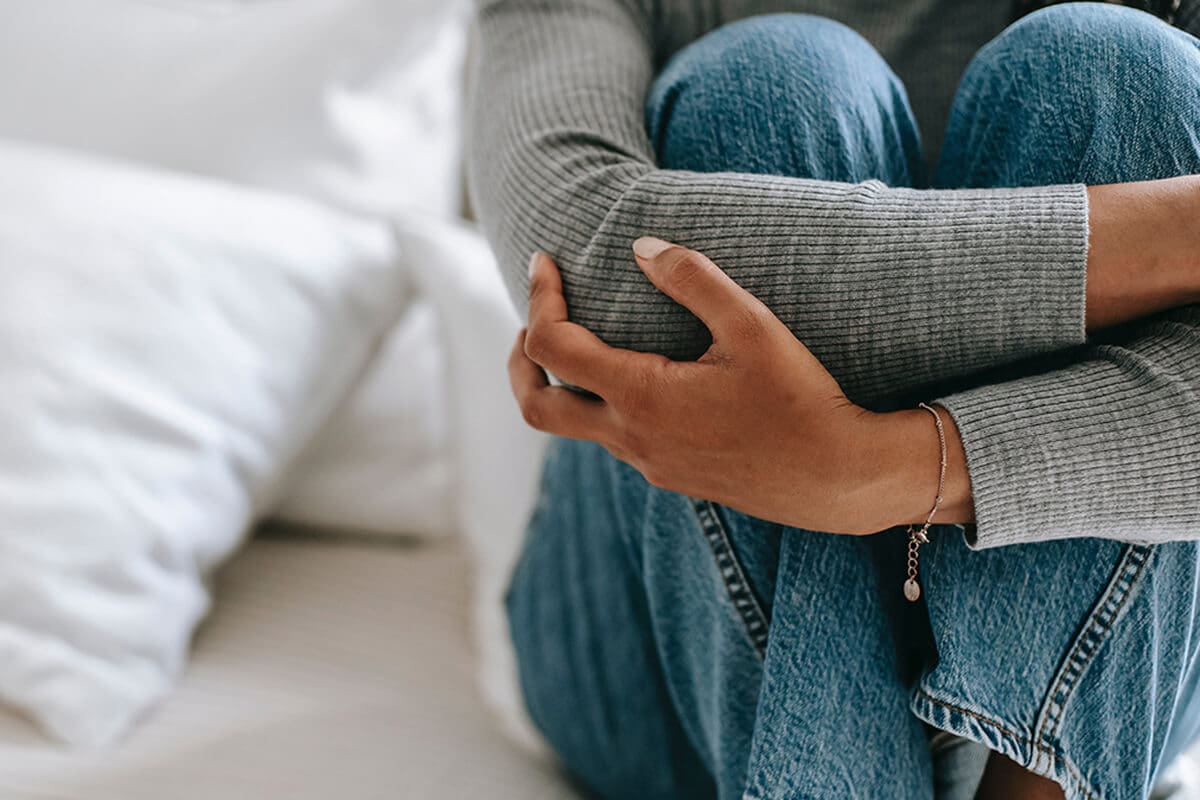By Tom Jasinski / Guidely
May is Mental Health Awareness month. No doubt, there are many factors that contribute to mental and emotional health and wellbeing. Everything from the food we eat to the way we move our body. From the supplements we take to the quality of our sleep regiment and sleep hygiene, down to the way in which we use social media, and how we connect to nature and to those around us.
But no conversation on mental health can be complete without a discussion on stress, our topic for today. Stress is a natural part of life. There is no denying it, no evading it. There is ONLY our response to it.
Although we only seem to hear about all the ways in which stress can result in inflammation and perpetuate a state of disease in the body (and no doubt, chronic unmitigated, unregulated stress CAN do that), it can, in fact, also be a very HEALTHY part of life.
Exercise, fasting, cold exposure, saunas, intense breathwork and more are all forms of hormetic stress that create very positive adaptive changes in mind and body. Intentionally creating short (CONTROLLED) and intense bouts of stress can allow the nervous system to increase its overall threshold for stress while strengthening overall resilience and flexibility.
You WANT a nervous system that is able to immediately spring into action when threat is present, but to also downregulate when any perceived threat has passed. And I say “perceived” because it is our perception of a situation that creates an internal state of stress, not necessarily the situation itself. And whether the threat is real (an actual lion chasing you) or imagined (a looming deadline at work you’re unsure if you’ll meet), the body will respond just the same.
How We Perceive Stress
But since we ARE on the topic of perception, it is worth noting that our perception of stress itself also plays a role in how our body responds to it. Having a neutral or positive view of stress creates a different chemical and electromagnetic response in the body versus seeing it as negative and detrimental to our health.rel
A study of about 30,000 individuals using data from the NHIS showed that stress in and of itself isn’t bad, but perceiving it as harmful IS. Risk of death was increased in groups that perceived stress as a negative thing. Those who had high levels of stress AND perceived it as harmful had a 43% increase in risk of premature death.
Not shocking, but here’s what fascinates me most: Those who had HIGH levels of stress, but did not perceive it as harmful, fared BETTER than those who had lower levels of stress! Meaning that HAVING stress AND a positive perception of it predisposes you to better health outcomes than having little to no stress at all.
Stress is natural. And in fact, keeps us alive.
Cortisol, adrenaline. These can actually reduce inflammation, upregulate our immune response, energize us, and even increase focus and alertness.
It is, of course, a very nuanced conversation since it DOESN’T serve us to be chronically hypervigilant, as may happen in cases of trauma and dysregulation in the nervous system. However, what’s most noteworthy here is that how we frame and perceive the situations we’re in has a tremendous impact on HOW the body actually responds.
Whether blood vessels constrict, or remain relaxed and dilated.
Whether resources in the brain are directed towards creative problem solving, or whether blood and oxygen are shuttled to the limbic system where we’re only concerned for survival.
You STILL want to make sure you have good strategies for regulating stress in your life and creating a flexible and resilient nervous system, but KNOW that stress in and of itself is ok. It’s how we perceive AND respond to it that matters most.
With that being said, what CAN we do when our stress response is on high alert?

Stress Hacks
It goes without saying that one of the best tools for dealing with states of heightened stress and anxiety is using your breath. It’s one of the most immediate ways you can create an internal change in state, so it’s the first of our stress hacks.
Following the work of Patrick McKeown of The Oxygen Advantage, most basically, make sure that you are breathing with the nose ONLY (mouth breathing can trigger natural heightened levels of fight-or-flight, keeping us hyper vigilant).
Slow and light breathing is key. In an ideal world, breathing about 6 breaths per minute.
Prioritize deep breathing by breathing into the belly and not into the chest. Shallow chest breathing creates an internal heightened state of stress whereas belly breathing downregulates the nervous system.
Breathing techniques
- Breathe at a ratio of 1:2. E.g. 3 second inhale, 6 second exhale. Extending the exhale activates more of the parasympathetic rest and digest system.
- 4-7-8 breathing popularized by Dr. Andrew Weil – 4 second inhale, 7 second hold, 8 second exhale (note that once more the exhale is extended, longer than the inhale) for 5 minutes.
- Coherence breathing from the Heartmath Institute – 5 second inhale, 5 second exhale for 5 minutes. Visualize the breath flowing into and out from the center of the chest. This helps create very coherent heart and brainwave patterns.
- Wim Hof Breathing – This is a very intense style of breathing. It intentionally raises the fire alarm inside the body to help the body adapt to increased levels of stress, thus raising your personal threshold for stress and helping you develop more resilience and flexibility to it.
- Last technique, from Dr. Andrew Huberman, that you can use in a pinch to help the body dump a lot of CO2 and lower immediate levels of stress is taking 2 – 5 minutes to do the following: Take a deep long inhale, until you can’t breathe in anymore. Pause. Take one last sip of air in. And then smooth long, extended exhales. And repeat.
Aside from breathwork… SLEEP!
This one is huge. A solid and consistent sleeping schedule, and QUALITY sleep, is probably one of the absolute most important things you can do to maintain healthy levels of stress, a balanced nervous system, strong immune system, lower levels of inflammation, healthy hormones and much much more.
Some advice I can offer:
- Start your day with bright sun exposure, make sure it hits the skin and eyes for 10 to 20 minutes. This will help set your circadian and cortisol rhythm, priming you for a good night’s sleep the following night.
- No bright lights or devices in the evening (especially 1 to 2 hours before bed).
- Having a wind down routine in the evening helps as well. e.g. warm showers (which will help lower the body’s core temperature post shower, making it easier to fall asleep); a yoga nidra practice; reading; journaling; meditating.
- A tea blend of passionflower, valerian, and hops is also very good for calming down.
- Making sure room is pitch black, and somewhat cool as well e.g. 65 degrees F.
Nutrition And Herbal/Supplemental Considerations
- Cutting out processed food, sugar, and if you’re sensitive to it, caffeine as well, will also do absolute wonders for your mood and levels of stress.
- Prioritizing healthy sources of fats e.g. avocados, fish, grass fed sources of meat, butter, ghee; real extra virgin olive oil; coconut products. The brain is 60% fat in dry weight. The membranes of cells in the body. The myelin sheath that covers and insulates the neurons in your nervous system. These ALL need healthy sources of fat. No vegetable oils, trans fat, etc. as these oxidize very easily and cause excess inflammation. Wild caught salmon, mackerel, sardines are all great sources as well since they provide omega-3 fatty acids which do wonders for inflammation in the brain and body, and can actually cross the blood brain barrier.
- Healthy sources of protein as well are essential since the amino acids found in protein are used to manufacture neurotransmitters like dopamine, serotonin, and GABA, all which can help in creating a more positive mood state.
- Both protein and fat are also necessary to help maintain healthy blood sugar levels. Often when blood sugar crashes or swings, excess cortisol is dumped to liberate glucose molecules for energy, which can lead to or aggravate states of stress or anxiety.
- Water. Hydrate, hydrate, hydrate. Add a pinch of pink salt or sea salt to electrolyze it.
- Optimizing your gut microbiome with fermented foods (if you’re not sensitive or have forms of IBS) as the correct microbes can help produce necessary neurotransmitters. Gut health in general is key, and benefits greatly from things like bone broth and collagen.

Supplements
- Magnesium is an absolute must and most people don’t have adequate levels. It’s responsible for over 300 different processes in the body. There’s different forms of it that do different things, which include lowering stress and helping relax muscles. Magnesium threonate specifically can cross the blood brain barrier, but I would recommend a complex that incorporates different forms.
- A vitamin B complex can also be very useful here as the brain requires different B vitamins to carry out key functions.
- Kava and additional adaptogenic herbs and mushrooms as well.
Daily Practices
- A daily gratitude practice (which has a mountain of scientific studies supporting its efficacy) can really help create that internal resilience and improved mood. Simply write (and FEEL) 5 to 10 things you’re genuinely grateful for and/or appreciate.
- Journaling can be profound and cathartic, helping us get things from our minds, OUT into the world, so they’re no longer simply percolating on the inside.
- Speaking to others, expressing fears, concerns, doubts.
- Exercise! Like you didn’t know that was coming. Moving the body is a wonderful way to process the chemical cascade of things like anger and stress. Physical stress can additionally increase our emotional and mental threshold for overall general stress as well.
- Cold exposure. Cold showers. Intentional brief bursts of stress can, again, help us adapt and increase our tolerance for it universally.
- Meditation! Big one here. There’s hundreds of styles and methods out there, but if I were to recommend something specifically for stress and anxiety itself, it would be the kinds of meditation styles that naturally produce slower brainwaves e.g. mindfulness type practices (like body scans; observing, but not engaging, thoughts and emotions; tuning into all 5 senses etc.) and meditations like Transcendental Meditation, or Ziva.
I know that was all a lot!
But no need to feel overwhelmed, see what calls to you and start applying where you can. It’s all about micro progress.
Most importantly, create self awareness (which mindfulness practices can also help cultivate) and recognize WHAT is at the root of your stress, and notice WHEN you start feeling levels of stress start to rise. Catch it early before it builds.
In moments like that, pull back, ask for help, get support, delegate some things. And take EXTRA care to nurture your mind and body.
The take home for today:
How we respond to stress, and how it affects us, has entirely to do with how we perceive it, and how we cultivate daily (and in the moment) practices to effectively navigate it!




